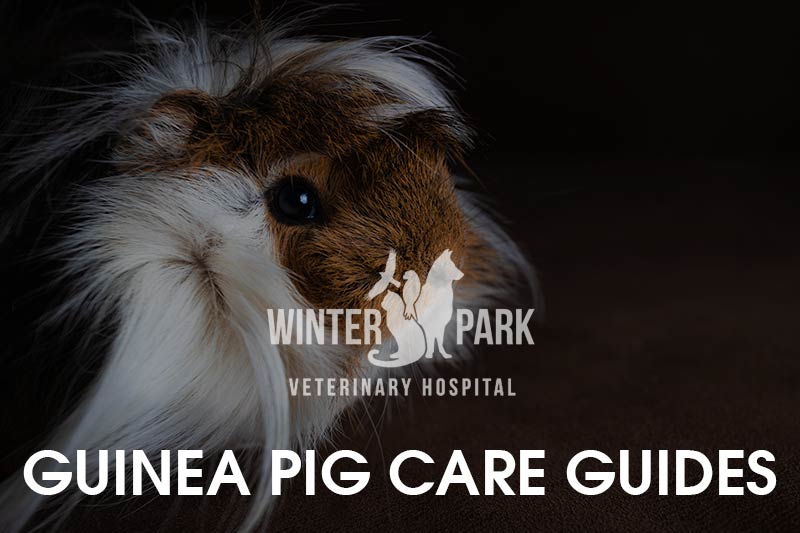Download Rabbit Care Guide – PDF
Red Urine
Rabbit urine varies in color from clear to yellow to brown to bright red. This is usually not a cause for alarm UNLESS there are additional signs such as sitting and straining to urinate or a loss of appetite. When you see red urine, don’t panic; just keep your eyes open for other signs that may indicate a problem. The red color will usually be gone in a day or two, but can last for a much longer time. Actual blood in the urine would look like urine with red specks. If you’re in doubt, don’t risk your bunny’s health—have your veterinarian test for blood in the urine.
Hairballs
Rabbits shed their hair every three months, altering heavy and light sheds. Because rabbits are very clean and are constantly grooming themselves and/or their companions, they ingest a great deal of hair. Over time, this hair may build up and block the stomach exit, causing the rabbit to starve to death while its stomach appears fat. Unlike cats, rabbits cannot throw up a hairball when it threatens their health and the resulting blockage can lead to death. The first sign of a hairball or other blockage (such as carpet) is a loss of appetite. The droppings will also get smaller and will often be strung together like a string of pearls or will contain hairs or pieces of carpet fiber. The rabbit’s stomach will then become bloated as it loses weight on its way to starving to death. Other signs of a hairball are reduced appetite, reduced fecal production, and pain. Seek immediate medical attention if you suspect a hairball problem.
To prevent blockages, regular brushing or combing is a must. Also, feed unlimited timothy hay EVERY DAY (do not give small compressed hair blocks as the fiber content is too low, therefor ineffective), allow plenty of exercise (in order to help the hair that they do ingest pass through the system), and occasionally offer fresh or frozen (not canned) pineapple, which contains bromelain to help break down the hair. Do not use petroleum-based laxatives such as Laxatone because these products may make the problem worse.
Spay/Neuter
Why spay/neuter? Studies indicate that up to 80% of un-spayed female rabbits will get uterine and/or ovarian cancer between two and five years of age, and a very high rate of males will get testicular cancer. Spaying or neutering your rabbit will help give him/her the potential life span of eight to twelve (or more) years of age. Also, upon reaching sexual maturity, rabbits will often display such undesirable behavior as urine spraying, chewing, fighting with other rabbits, etc. Spaying/neutering will greatly reduce and in many cases, eliminate these behaviors.
It is EXTREMELY important to make sure that your veterinarian is knowledgeable and experienced with the procedure and with rabbits in general. A rabbit neuter or spay can be dangerous or even life threatening if the improper anesthetic or surgical techniques are used. If the rabbit is older, tests may need to be done to assess liver and kidney function prior to surgery. The House Rabbit Society (www.rabbit.org) keeps a list of experienced rabbit veterinarians. Please question the veterinarian carefully about their experience with rabbits before you take your bunny in for surgery. Always request post-operative pain relief; it is humane and will help your bunny recuperate faster.
Teeth
Rabbit teeth are constantly growing, so rabbits chew to help keep their teeth the proper size. Some rabbits however, have misaligned or “maloccluded” teeth, which means that their teeth do not wear down properly and grow too long. A rabbit with this condition needs to have his/her teeth clipped periodically so that they can eat. Your veterinarian can do this for you. Very rarely, a bunny will need to have his/her front teeth removed due to extreme malocclusion. These rabbits do just fine as long as you cut up their food into small pieces. The misalignment of the front teeth can be easily seen, but the back teeth need to be checked under anesthesia by your veterinarian on at least an annual basis. One indication that their back teeth may be a problem is a wet chin that is caused by drooling. Teeth should be checked at each grooming session.
Cedar & Pine Shavings
Contrary to popular belief, these are VERY BAD for rabbits and other animals. “Aromatic hydrocarbons from cedar and pine bedding materials can induce biosynthesis and hepatic microsomal enzymes which are known to cause liver disease” (quoted from the U.S. Department of Health and Human Services guide for the care of laboratory animals). Recommended litters are Carefresh and Yesterday’s News. DO NOT USE CORNCOB FOR RABBITS—if they eat it, it can get lodged in their stomach and create a serious blockage. NEVER USE SCOOPABLE/FLUSHABLE (CLUMPABLE) CAT LITTERS—rabbits can eat this and become extremely, even fatally, ill.
Sneezing
Sneezing may or may not be a sign of trouble. If a runny nose and/or runny eyes accompany sneezing, a veterinarian should be seen immediately, especially if there is also a loss of appetite. If the rabbit is sneezing but has no other symptoms and is eating well, it may be allergies or even nothing at all, but keep a close eye out for the development of any other symptoms and keep in touch with your rabbit veterinarian.
Parasites
Rabbits can get the common dog or cat flea, but be very careful about the products you use to treat the home and the yard as well as the products you use on your rabbit. If the yard is treated, do not allow your rabbit on it for at least a week and then water the yard thoroughly to wash off any residual chemicals. If your rabbit must be treated for fleas, only use products recommended by your veterinarian. Listed below are common parasites:
Skin Mites live on the skin dander of rabbits and will cause your rabbit to scratch. If left untreated, they will eventually cause thick crusts to develop on the rabbit’s body. Your veterinarian can administer a drug called Ivermectin to treat this problem.
Ear Mites cause rabbits to shake their heads frequently and scratch their ears. If left untreated, a middle ear infection could develop which may cause a problem with their balance. Ivermectin is also recommended for ear mites.
Internal Parasites called coccidian can infect the small intestines. Symptoms can range from a loss of appetite to chronic diarrhea and occasional death. Testing for coccidian is as easy as taking a fecal sample to your veterinarian during the rabbit’s annual check-up.
Toxoplasmosis is a parasitic disease that can be transmitted to humans and is especially dangerous to pregnant women. Many pregnant women and their doctors incorrectly believe that rabbit feces carry this disease. Rabbits cannot carry or reproduce the oocysts (eggs) that are harmful. Many rabbits are abandoned because of an unfounded fear of toxoplasmosis.
If your rabbit is free of any of these parasites, it is unlikely that they will get them as long as they are kept inside, their home is clean and they are not exposed to other animals that may carry these parasites.
Amoxicillin Danger
NEVER let a veterinarian give your rabbit amoxicillin (an antibiotic that is pink in color and smells like bubble gum). Amoxicillin and other forms of penicillin kill the “good” bacteria in the rabbit’s intestines and can cause other organs to malfunction. There are other antibiotics that can safely be given to rabbits such as Chloromycetin, Tetracycline, and Baytril. Occasionally, a rabbit cannot tolerate an antibiotic (signs are a loss of appetite, diarrhea, and others) and another may have to be tried instead. If your veterinarian says that just this once amoxicillin will be okay or that they have no other antibiotic to dispense—FIND ANOTHER VET!
Surgeries
Food and water should NOT be removed from a rabbit the evening before surgery! If the office staff directs you to withhold food, discuss the request with your veterinarian. Rabbits cannot throw up and possible vomiting is the reason that food is removed from cats and dogs. Withholding food is harmful to rabbits and causes a longer recovery time if food and/or water are denied. The rabbit should also be tempted to eat as soon as it awakes from surgery to assist in the recovery process. After surgery, offer lots of things you would normally consider “treats” in order to help them begin eating again.
Emergencies
The veterinarians at Winter Park Veterinary Hospital are on-call for our exotic pet clients at the Veterinary Emergency Clinic of Central Florida. The VEC is located in Casselberry, off U.S. Highway 17-92, at 195 Concord Drive. They can be reached at (407) 644-4449. In the event of an emergency, you should call the VEC and identify yourself as a WPVH client. For a special call-in fee, our doctors will gladly come in to examine and treat your rabbit. If you do not wish to pay the call-in fee, please make sure the doctor working there has rabbit experience and is willing to see your pet. Conditions that require emergency care (within 24 hours) include diarrhea with listlessness, loss of appetite with bloat and/or abdominal gurgling, loss of appetite with labored breathing, loss of appetite with runny nose or eyes, head tilt/loss of coordination/paralysis, incontinence (urine-soaked rear legs), abscesses and/or swelling, any sudden behavior change, a thick nose or eye discharge and finally, any sign of severe pain (loud teeth grinding, hunched posture, shallow/rapid breathing, excess grooming, reduced activity, or facing the corner with head down).








